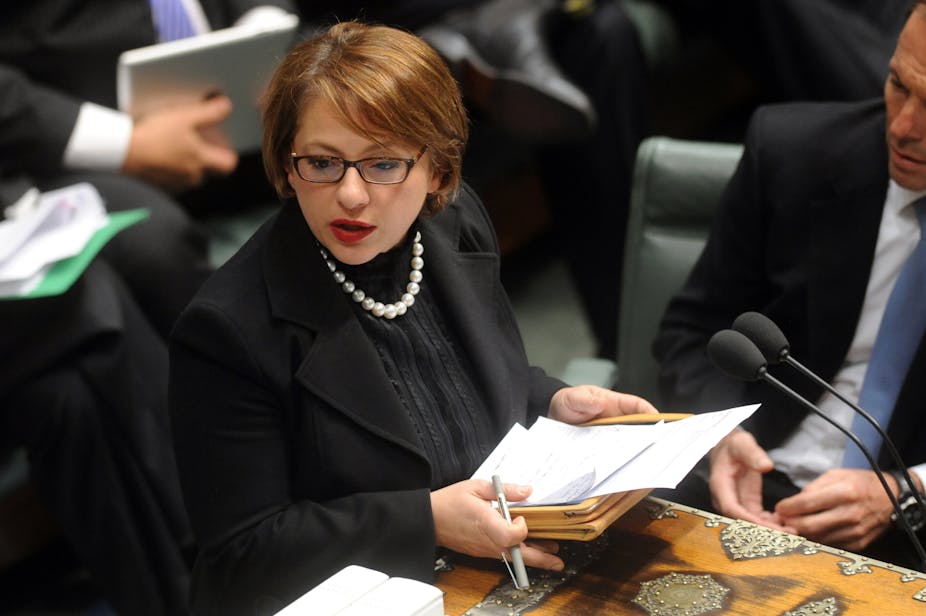Hard-faced.
I’m looking at that phrase and wondering exactly what it means.
Of course, I know what it means when it’s applied to men. They are heroic, they’ve seen things that those of us who are more sheltered should never see. They are game for life. Indeed, they have to hide their feelings to protect us from the enemy.
It is, as a young student of mine said, a compliment when it’s applied to men. But what does it mean when it’s applied to women? Susan Butler, the editor of the Macquarie Dictionary, replies instantly when I ask her.
Hard-faced bitch comes to my mind as a standard derogatory insulting remark.
There is, she says, no implication that a “hard-faced bitch” may have a soft heart. “She’s born that way,” says Butler.
And it’s standard political commentary when it comes to describing women who are ambitious and who display their ambition. This week, Sophie Mirabella was described as “hard-faced”. In short, Mirabella copped the Julia Gillard treatment, although there was no mention of the size of any of her body parts.
There is no question. Mirabella, who looks like she will lose her Victorian seat of Indi to independent Cathy McGowan, is an unpopular figure. That’s not my opinion speaking – that’s the voice of her electorate which did not emulate the nation’s swing to the Coalition.
This has zero to do with her public persona – it’s a judgment made by the people who voted her into their seat. It’s not because she watched GetUp’s Simon Sheikh keel over on the ABC’s Q&A. It’s not because of her relationship with her former partner and mentor Colin Howard, although those things shape the public consciousness.
But the wholesale and loathsome enthusiasm for her demise is not about how she represented Indi. It’s the response of a national electorate which has an appetite for talking about women as if they were dogs. Or bitches.
Mirabella herself conspired in the formation of this discourse when she appeared beneath the now infamous “Ditch the Witch” signs. But that’s not reason enough to treat her that way.
We describe women in politics or in power in a way we would never describe men. Just turn to page 106 of Anne Summers’ book The Misogyny Factor to look at the inventory of remarks about our former prime minister, a catalogue which begins with bitch, continues through moll, and ends with whore.
Of course, it’s an extension of what happens to any woman, anywhere. We now all know, thanks to a 2006 University of Maryland study, that anyone with a female username on the internet is 25 times more likely to be trolled. Don’t think that only happens on the internet. It happens to women in real life, with real names, who are real people. To Julia Gillard. To Sophie Mirabella. I wrote a story about Liberal Senator Sue Boyce this week because she thinks the lack of representation of women in Cabinet is a national disgrace. The emails I received about her were the actual disgrace.
Women agree that women are treated badly.
Don’t think it’s my imagination. As Crikey’s Cathy Alexander wrote last year:
If Julia Gillard was Julian Gillard, she’d get an easier time of it.
A new Essential Research poll has found 51% of those surveyed thought Gillard “had been subject to more personal criticism than a male prime minister would be”, while just 6% thought she copped less flak than a man would.
Women feel the difference: 61% of women thought Gillard was criticised more than a man would be criticised.
I think that publishers need to take some responsibility for what they publish – particularly in opinion pieces.
Do I want censorship?
Here’s my answer. We’ve stopped using the word nigger.

